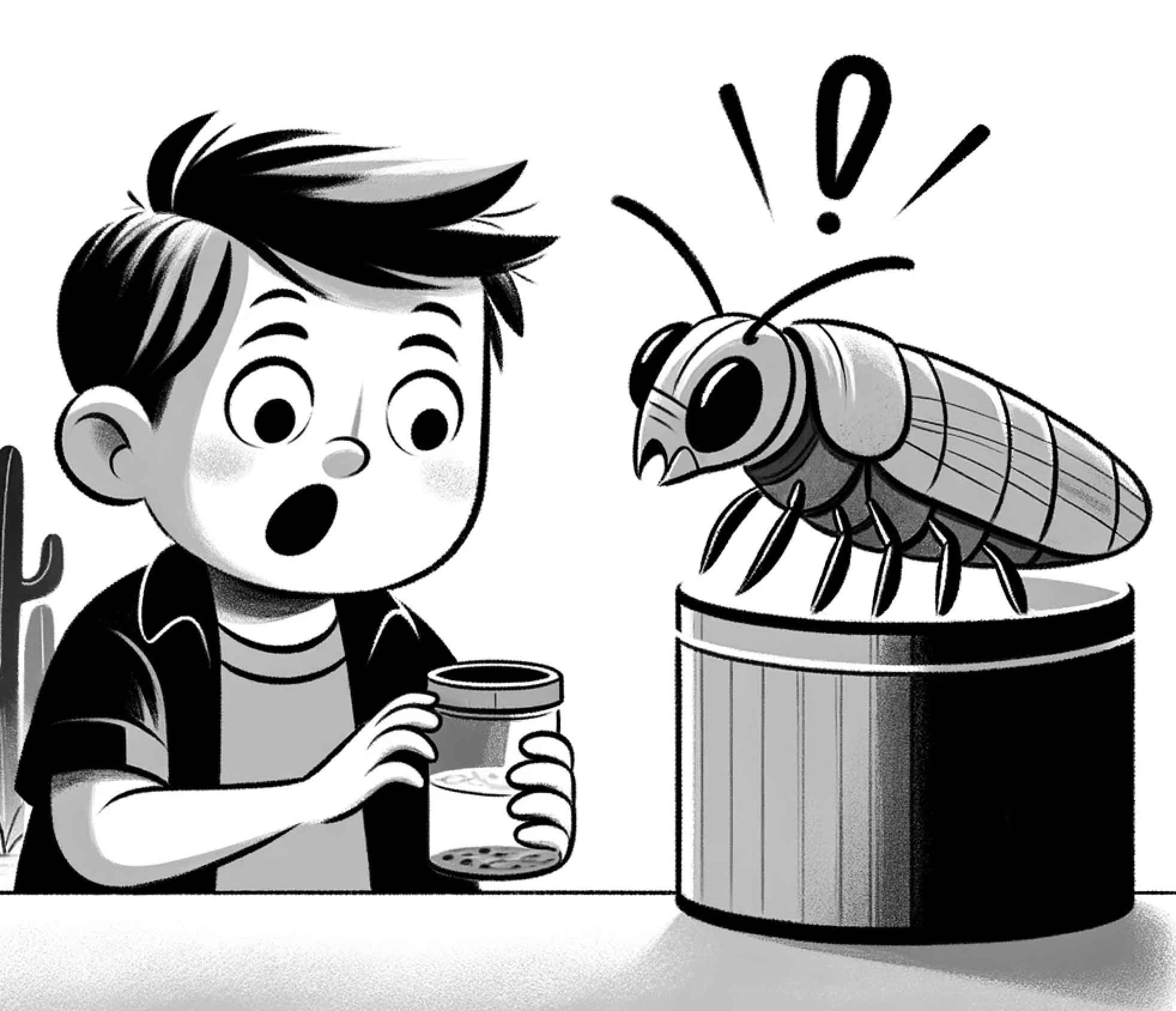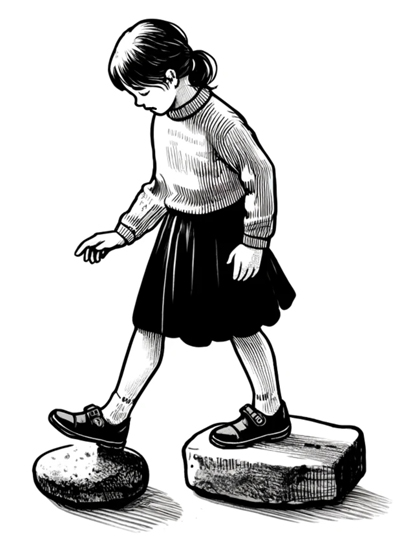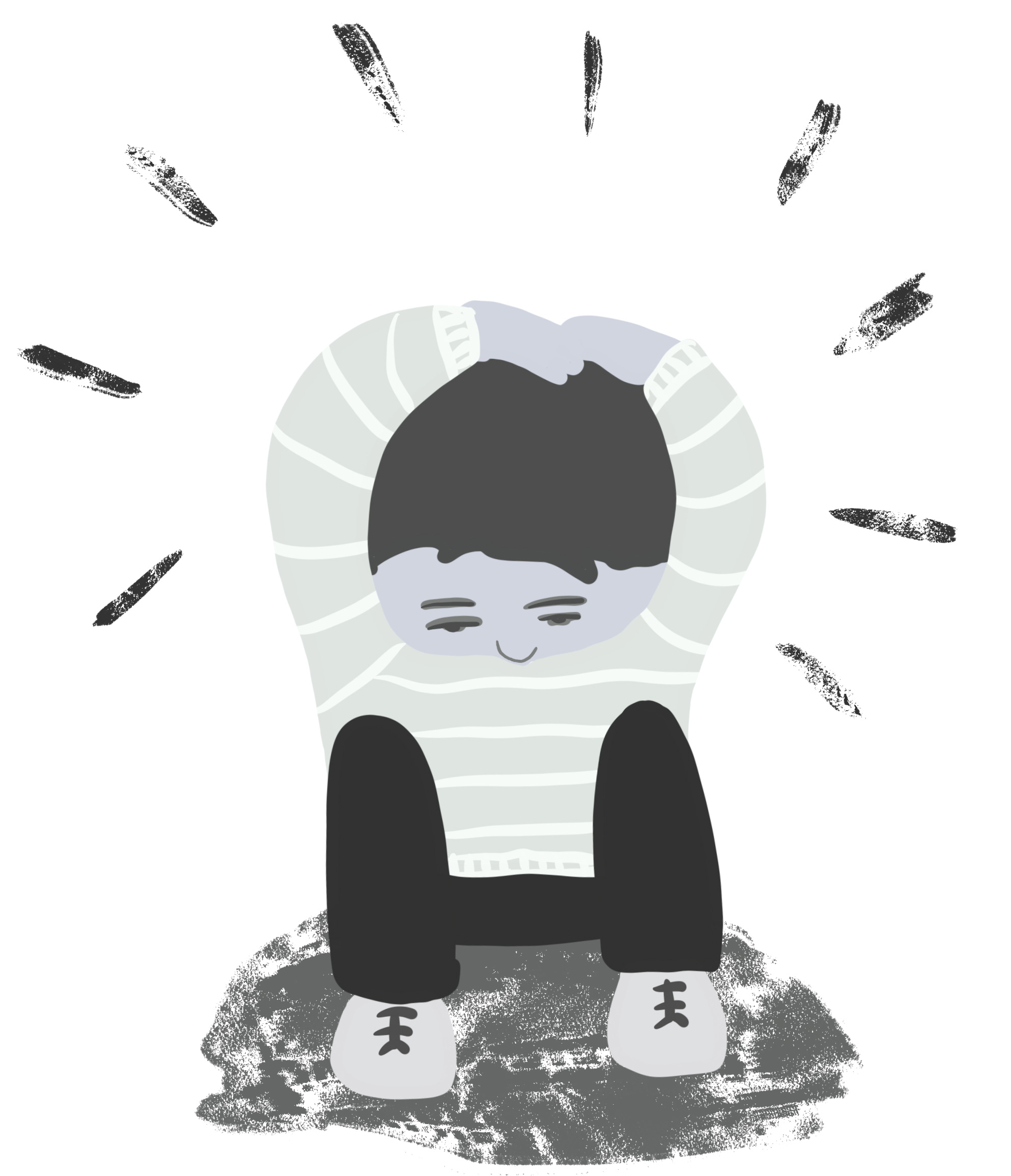- Home
- types
What types of anxiety might a child have?

There are many types of anxiety. And anxiety doesn’t usually fill every part of a child’s life. That’s why I dislike labelling children, because labels make it seem as if the child is the anxiety.
They're always so much more than their anxious bits!
(Please note, though, that if their type of anxiety is pervasive, and all-consuming, this is often labelled Generalised Anxiety Disorder. Along with some other similar “disorders”, if your child has this label, it probably means you’ve consulted your GP at some point to check out what's happening with your child. The help I’m offering here is intended to stem things before it gets that far. As in, the anxiety is generalised but not out of hand.)
Mostly, though, children only become anxious at one kind of time or event – maybe school time, nighttime, change of routine, when with other people, that sort of thing.
So “anxious child” tends to give the wrong impression of the problem (but I did need a website name!).
On the other hand, if you arrived on this page because your child is showing signs of being anxious and worrying a lot, then it’s good to try and sort out (from the various types of anxiety) which kind of event triggers their anxious behaviour – because then you can help to solve it.
Let’s see if we can narrow down the possible types of anxiety a bit first:
Is one of these events a particular problem for your child?
- Transitioning from one activity to another
- Having to separate from a particular person
- Becoming anxious in social situations
- Having to face something disliked – more like developing a phobia
- When meeting strangers
- Feeling generally anxious all the time
- Going to bed
- Having to do a specific something properly – maybe in front of the class or in public
- Wondering about their gender identity (I deal with sexual identity under causes of anxiety – although both of these topics could be in either Types or Causes)
Another type of anxiety: about relationships
We’re wired for relationship! Anxiety, danger and threat drive us together to seek support like nothing else.
Where does it start? And where can it go wrong at different stages? What works for settling relationship anxiety? And what doesn't?
Read my blog post on the topic, where I deal with the idea from birth, through primary school stage to secondary school age relationship anxieties.
Types of anxiety: where to go from here
If you’ve worked out exactly when and where your child gets anxious (ie the type or types of anxiety they may have) then follow the links in the bullet points above and I will offer information, ideas and help for that particular situation – gathered from my experience of working with children and young people, and knowing what might help parents most.
A further thought about generalised anxiety
As I mentioned above, Generalised Anxiety Disorder (GAD) is another of the many types of anxiety, and it’s been usually diagnosed by a medical practitioner. The anxious behaviour shows up during lots of events and at most times. And your child will be unable to put their worries aside for periods of time, as another child might.
I’m not keen on “disorder” terminology because it can be taken as synonymous with “needing medical treatment”. And that may be so, if it's allowed to get out of hand.
It will eventually cause "dis-order" in a child’s life, and spoil their childhood, so tackling it as early as possible is a good idea. That way, there can be a chance to avoid the need for medication.
One way generalised anxiety can be made less extreme is using techniques from cognitive behavioural therapy (CBT). These are simple to use at home in their basic form, and I will show you a few things that might help here.
I also have a page on more generalised anxiety here. There, you'll also find a link to a book of home activities and excellent information.
Would you like some books to read with your child?
Some form of childhood anxiety is a given – life is full of anxious moments for everyone! So having books around the house is a wonderful way to allow your child to slip into a state of
- being somewhere else
- seeing life through different eyes
- side-stepping away enough to feel emotions at one remove
- finding a glimmer of how they might cope and survive.
See my blog post on 7 super books to read together that weave a plot and some magic for your child when they're anxious.

If at any point after you've thought about the types of anxiety, you feel you need a counsellor to have one-to-one sessions with your child, then please consult my Help section, where you'll find lots of help to do this safely and from a well-informed perspective.
There is also a blog post on this topic now.






